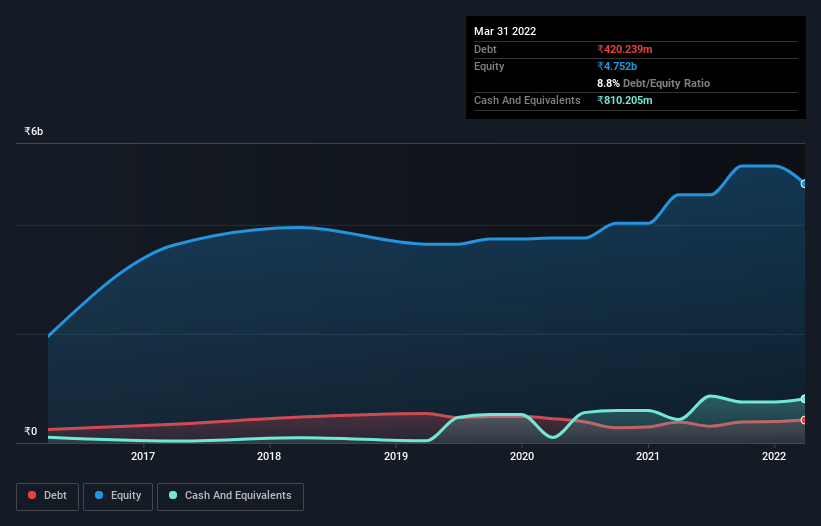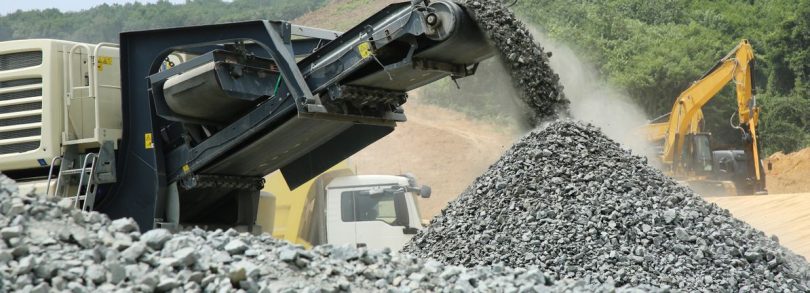[ad_1]
David Iben put it well when he said, ‘Volatility is not a risk we care about. What we care about is avoiding the permanent loss of capital.’ So it might be obvious that you need to consider debt, when you think about how risky any given stock is, because too much debt can sink a company. We note that Gujarat Sidhee Cement Limited (NSE:GSCLCEMENT) does have debt on its balance sheet. But the more important question is: how much risk is that debt creating?
When Is Debt A Problem?
Debt is a tool to help businesses grow, but if a business is incapable of paying off its lenders, then it exists at their mercy. If things get really bad, the lenders can take control of the business. While that is not too common, we often do see indebted companies permanently diluting shareholders because lenders force them to raise capital at a distressed price. By replacing dilution, though, debt can be an extremely good tool for businesses that need capital to invest in growth at high rates of return. The first thing to do when considering how much debt a business uses is to look at its cash and debt together.
Check out our latest analysis for Gujarat Sidhee Cement
What Is Gujarat Sidhee Cement’s Debt?
The image below, which you can click on for greater detail, shows that at March 2022 Gujarat Sidhee Cement had debt of ₹420.2m, up from ₹383.1m in one year. However, its balance sheet shows it holds ₹810.2m in cash, so it actually has ₹390.0m net cash.

How Healthy Is Gujarat Sidhee Cement’s Balance Sheet?
According to the last reported balance sheet, Gujarat Sidhee Cement had liabilities of ₹1.56b due within 12 months, and liabilities of ₹781.2m due beyond 12 months. On the other hand, it had cash of ₹810.2m and ₹254.7m worth of receivables due within a year. So its liabilities total ₹1.28b more than the combination of its cash and short-term receivables.
Gujarat Sidhee Cement has a market capitalization of ₹2.87b, so it could very likely raise cash to ameliorate its balance sheet, if the need arose. However, it is still worthwhile taking a close look at its ability to pay off debt. Despite its noteworthy liabilities, Gujarat Sidhee Cement boasts net cash, so it’s fair to say it does not have a heavy debt load!
The modesty of its debt load may become crucial for Gujarat Sidhee Cement if management cannot prevent a repeat of the 38% cut to EBIT over the last year. Falling earnings (if the trend continues) could eventually make even modest debt quite risky. There’s no doubt that we learn most about debt from the balance sheet. But you can’t view debt in total isolation; since Gujarat Sidhee Cement will need earnings to service that debt. So if you’re keen to discover more about its earnings, it might be worth checking out this graph of its long term earnings trend.
Finally, a company can only pay off debt with cold hard cash, not accounting profits. Gujarat Sidhee Cement may have net cash on the balance sheet, but it is still interesting to look at how well the business converts its earnings before interest and tax (EBIT) to free cash flow, because that will influence both its need for, and its capacity to manage debt. In the last three years, Gujarat Sidhee Cement’s free cash flow amounted to 38% of its EBIT, less than we’d expect. That’s not great, when it comes to paying down debt.
Summing up
Although Gujarat Sidhee Cement’s balance sheet isn’t particularly strong, due to the total liabilities, it is clearly positive to see that it has net cash of ₹390.0m. So while Gujarat Sidhee Cement does not have a great balance sheet, it’s certainly not too bad. The balance sheet is clearly the area to focus on when you are analysing debt. However, not all investment risk resides within the balance sheet – far from it. For example – Gujarat Sidhee Cement has 3 warning signs we think you should be aware of.
If, after all that, you’re more interested in a fast growing company with a rock-solid balance sheet, then check out our list of net cash growth stocks without delay.
Have feedback on this article? Concerned about the content? Get in touch with us directly. Alternatively, email editorial-team (at) simplywallst.com.
This article by Simply Wall St is general in nature. We provide commentary based on historical data and analyst forecasts only using an unbiased methodology and our articles are not intended to be financial advice. It does not constitute a recommendation to buy or sell any stock, and does not take account of your objectives, or your financial situation. We aim to bring you long-term focused analysis driven by fundamental data. Note that our analysis may not factor in the latest price-sensitive company announcements or qualitative material. Simply Wall St has no position in any stocks mentioned.
[ad_2]
Source link








